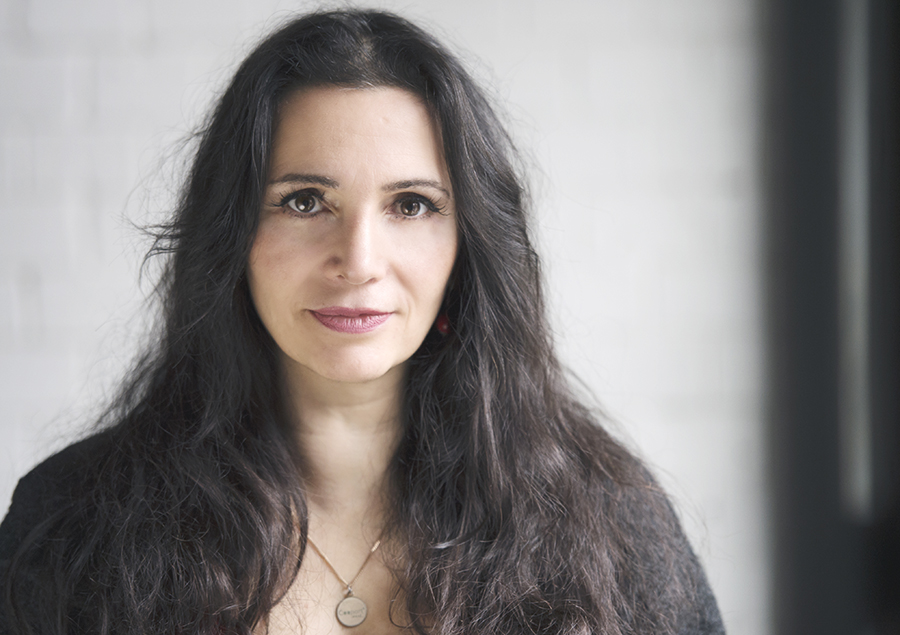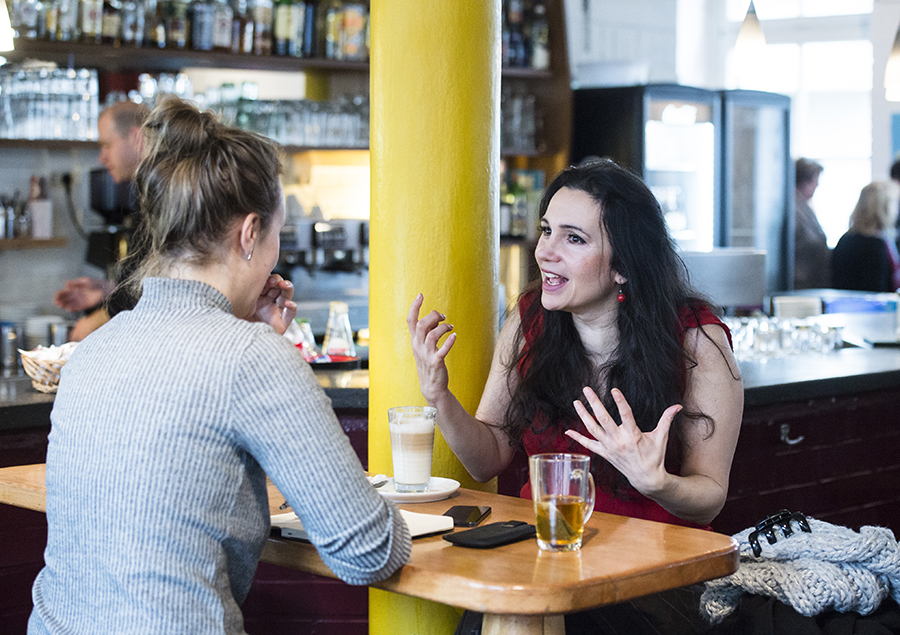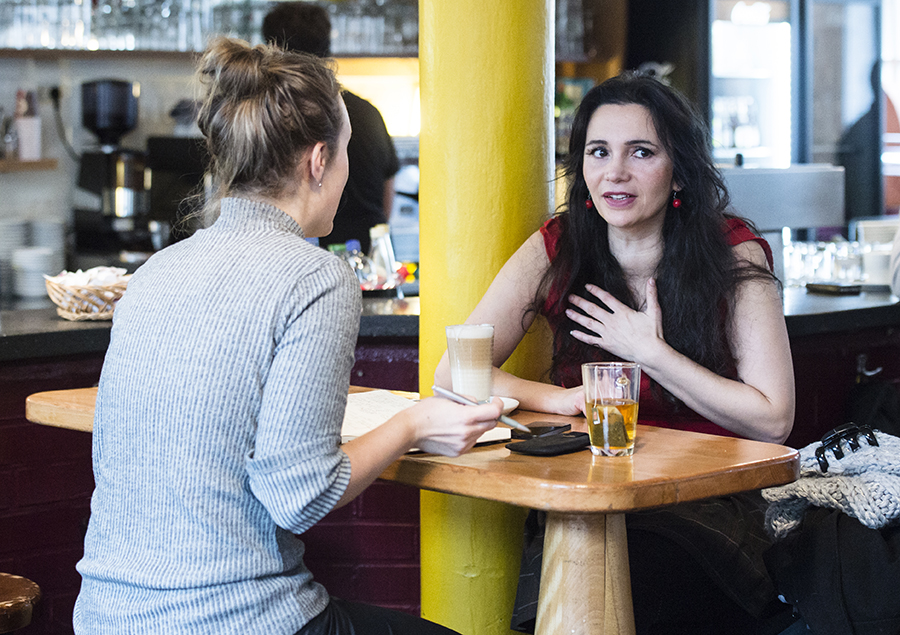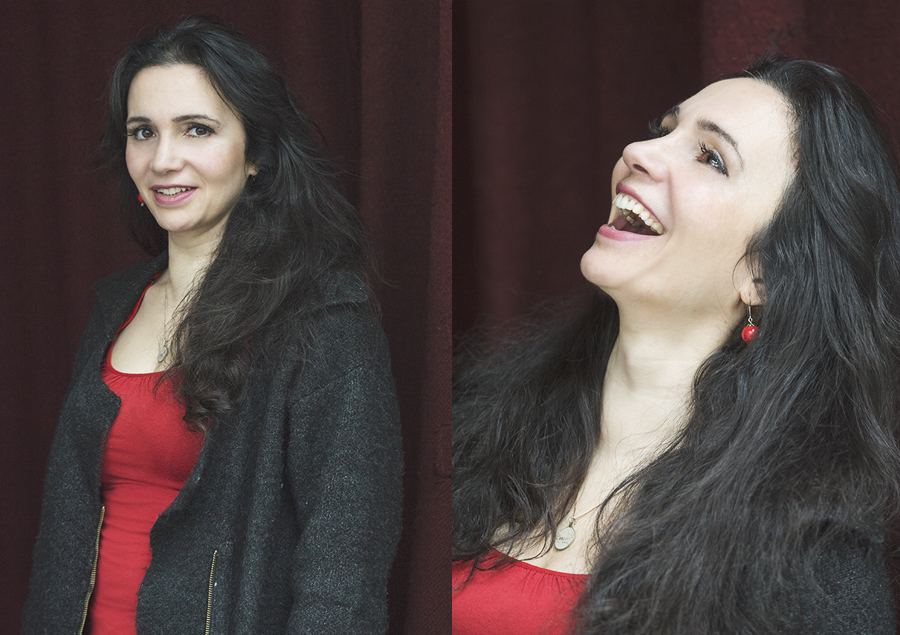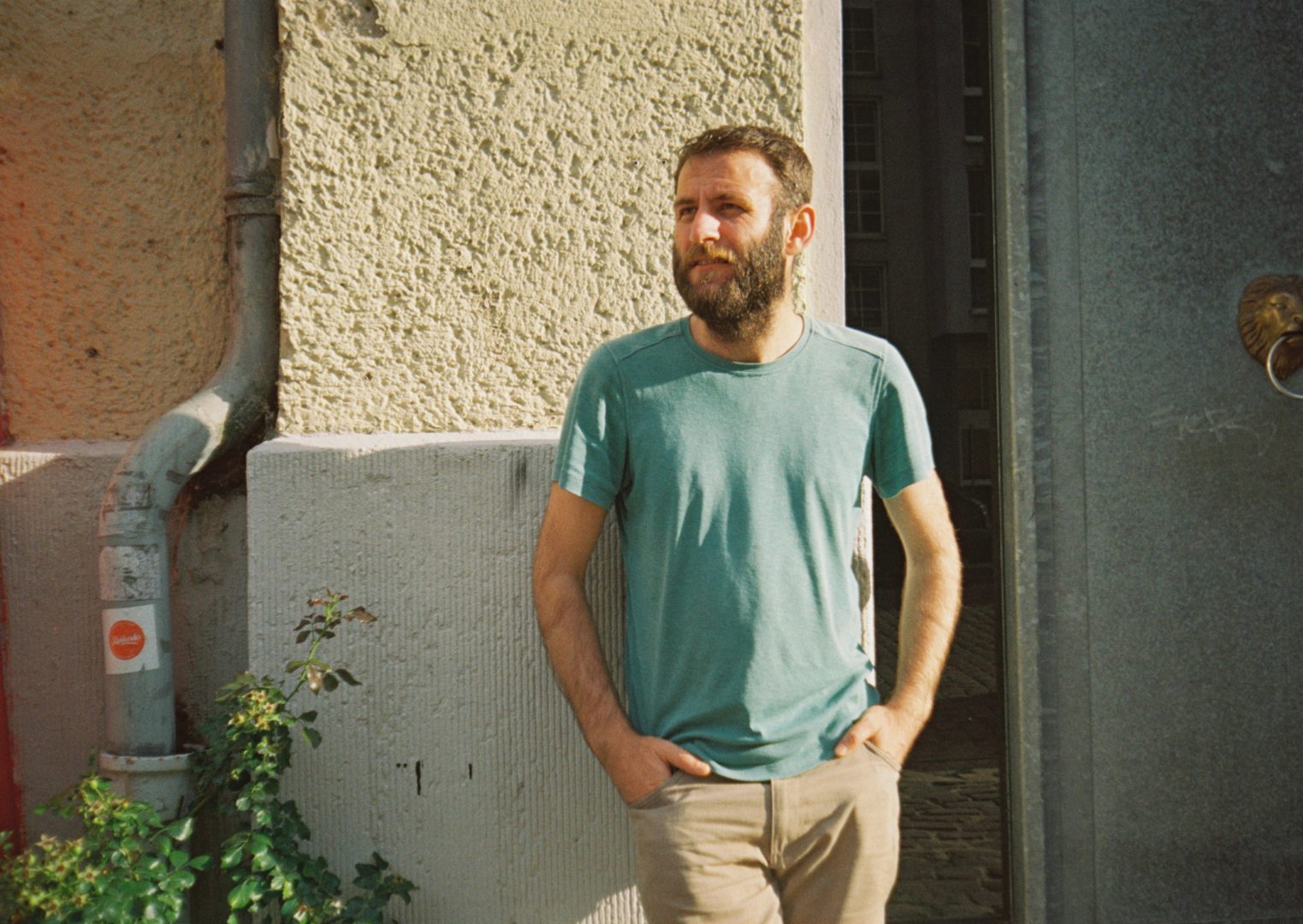Senay Duzcu is the first female German-Turkish stand up comedian in Germany. We met her on a cold and rainy Sunday for a hot drink in a cafe in the beautiful Agnesviertel of Cologne. Around us, children coo and adults chew: a Family brunch. Senay told us which joke is best received, and why she suggests that German learners should learn a French accent.
A few years ago you received the German-Turkish Friendship Award. This was because they said you are building a bridge between the cultures with your program. Are you really do this? And if so, how?
I think so. Laughing and sharing emotions creates intimacy. I try to mirror both cultures in my stage program, but in a fluffy way. It can’t be so serious. I don’t think much of integration using seminars and the like. We need to have empathy for each other, and this can’t be achieved through rational thinking. I sometimes compare it to a relationship or a marriage: If the feelings for each other aren’t there, you can’t think or speak them into existence.
Why did you become a stand up comedian?
I never used to think that I had anything to say. I was really restricted as a child by my parents. Now I am allowed to say a lot when I’m on stage. I just want to express my view on things. If someone likes it, I’m happy. And I enjoy making people happy. These are the reasons why I am a stand up comedian today. Generally, I always do it like this: I imagine myself outside of my current dimension, what I want, and then work for it.
Which jokes are best received?
That varies from city to city. You really have to make sure that you don’t tell the same joke everywhere, or get on the wrong side of people. I also think that you have to have a good attitude on stage. Under no circumstance can you seem needy: Please, please like me and laugh. That just doesn’t work. Then no joke will be well received. The people can smell it. Germans always laugh at the parts where they recognise themselves. The only joke that really works, always and everywhere, is the start into my program: “Hello, I’m Senay, I’m from Turkey, from the fourth-largest city, to be more precise, from Duisburg.”
What role do stereotypes and prejudices play in your program?
A large one. People really like it. They ask themselves: Why do men or women do this or that? They want answers. I also take questions from journalists as inspiration for my program. They always ask me: Why does your mother do that? Why weren’t you allowed out as a young girl, as a Muslim? What do your parents think about you doing stand up comedy on stage? The most silent moment is always the one when I am on stage and recount what my father thinks about all of this . Once I did a program on the topic of women and men. The audience was disappointed.
Do you sometimes get annoyed about the prejudices that exist against people with Turkish roots here?
Yes, definitely. I don’t understand people who live in Germany, and have never spoken with a person of Turkish background, and then think strange things. I would be for founding an organisation where exactly these people have to speak with someone with Turkish roots. Another idea: Why not teach a refugee German with a French accent? French is considered very charming.
Do you grapple with the topic of refugees?
Of course it’s on my mind. And it bothers me that I am seen as a representative for foreigners and Muslims and therefore have to constantly distance myself from it. I was often asked about my opinion about the horrible incidents on New Year’s in Cologne’s main train station. At first I didn’t want to say anything, but after I was asked constantly, I thought ok, I’ll do it. But I think: If I have to speak up and distance myself, then all men should have to, too. And that’s where one realises how ridiculous it is.
Can you imagine taking on other topics for your stage program?
Yes, I find the topics of television and news interesting, or even the German language and its peculiarities. We say “The coffee is empty.” One also says “The Fanta is out.” One asks oneself: Where did the Fanta go then? Another good one is statements from the Deutsche Bahn: A ‘man-less’ woman’s handbag has been found” (man-less (herrenlos) means abandoned in German – ed.). It’s funny when you think about it like that.
